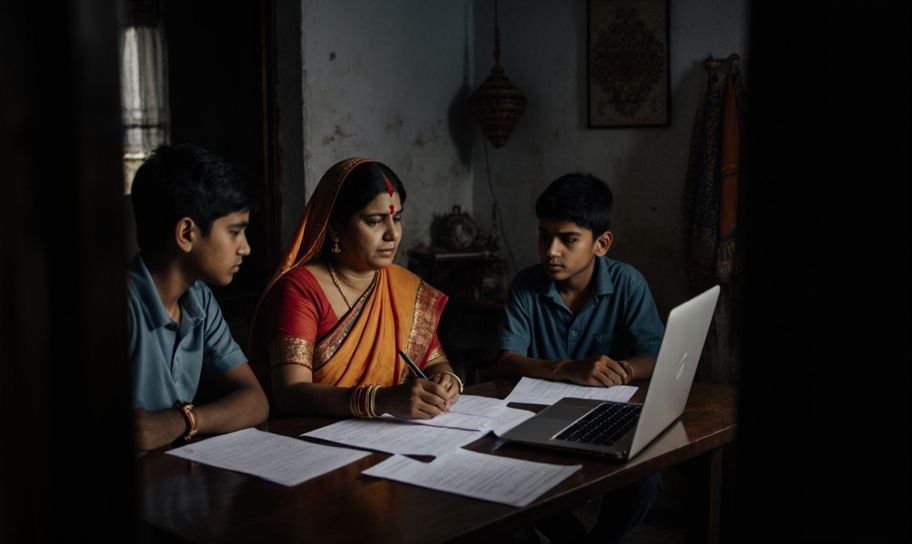
Summary: The Bombay High Court resolved a family argument over pension benefits after a government worker died, deciding in favor of the widow and children over the mother and brother.
Vaishali Vijay Burande, along with her sons Kshitij and Prachit, filed a case against the State of Maharashtra and other family members. Vaishali's husband, who worked for the government, passed away, leaving behind a complicated situation regarding who should get his pension.
Vaishali's husband was a teacher at Swami Ramanand Teerth Rural Medical College. He was part of the Defined Contributory Pension Scheme (DCPS) because he joined after November 2005. This plan doesn't offer ongoing family pension payments, just a one-time payment to people named by the worker.
In 2011, Vaishali's husband filed for divorce and changed the person who would get his pension from Vaishali to his brother, but kept his sons as nominees. After he died in 2018, Vaishali tried to get the pension benefits but faced resistance from her mother-in-law and brother-in-law.
Vaishali applied for benefits under the new rules, arguing the decisions favored her and her sons.
The court, led by Judges Manish Pitale and Y. G. Khobragade, decided in favor of Vaishali. They pointed out that the family pension rules included her and the children, not the mother or brother. The court stated:
"The petitioners are entitled to family pension under MCSR 1982."
The court ordered the state to give the family pension to Vaishali and her sons, with back payments calculated from the date of her husband's death. If delayed, the amount would earn interest.
The court's decision ensured that Vaishali and her sons received their rightful benefits, highlighting the importance of family in pension matters.
"Rule is made absolute in above terms."
Vaishali's determination paid off, securing her family's financial future despite the legal challenges.